The Ministry of Information and Communications (MIC) is seeking comments on a draft Decree replacing Decree No. 72/2013 (Decree 72) on the management, provision and use of internet services and online information.
Raise user awareness
Mr. Le Quang Tu Do - Director of the Department of Radio, Television and Electronic Information - said that the submission of the Ministry of Information and Communications to the Government clearly stated that the Law on Cyber Security has specific regulations. Accordingly, enterprises (domestic and foreign) providing services on telecommunications networks, the Internet, and value-added services on cyberspace in Vietnam are responsible for "verifying information when users register for digital accounts" and "providing user information to the specialized force for protecting cyber security under the Ministry of Public Security, when requested in writing to serve the investigation and handling of violations of the law on cyber security".
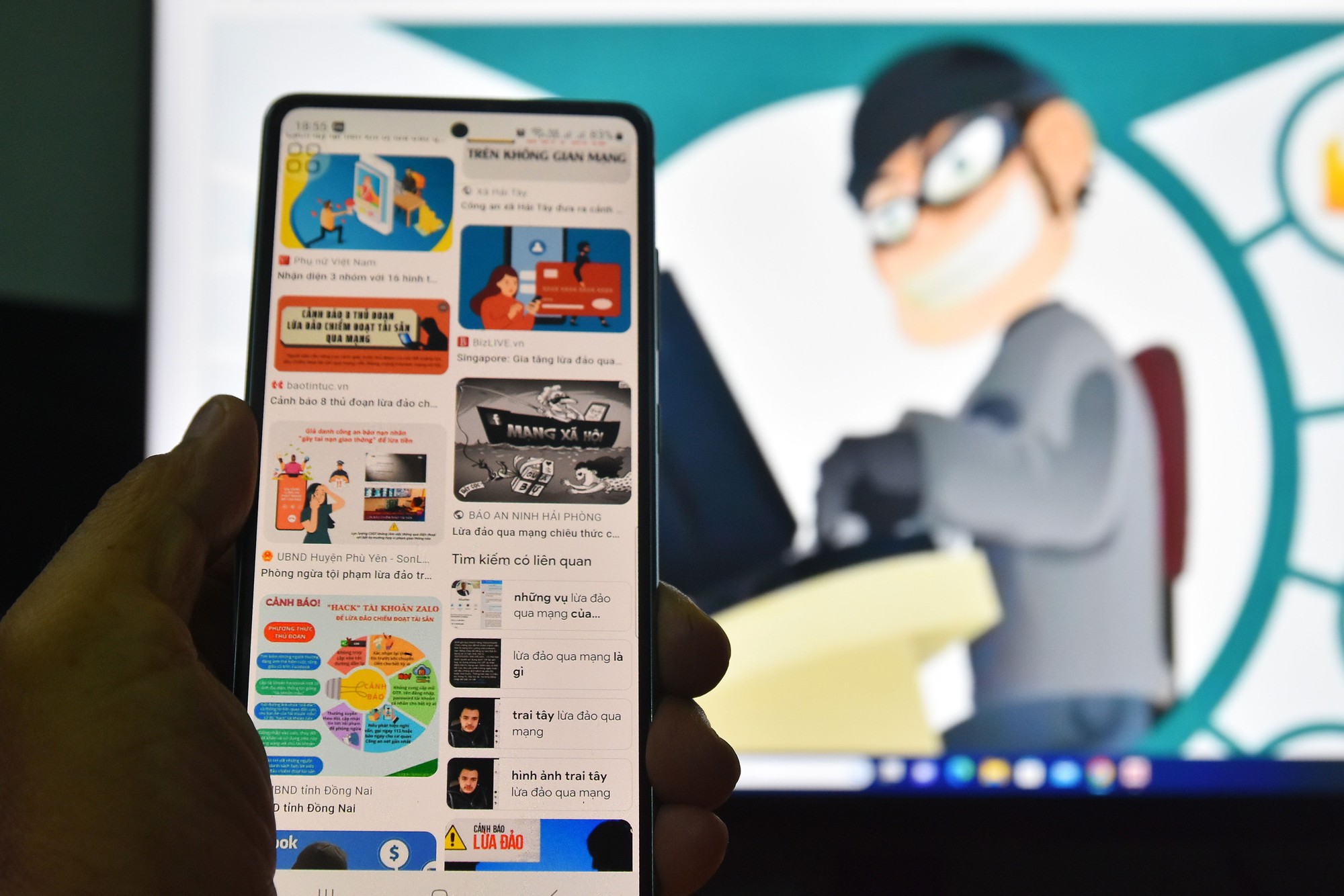
Authorities and many localities have warned social media users about online fraud. Photo: TAN THANH
However, due to the lack of regulations guiding the Law on Cyber Security on this content, organizations and businesses providing social networks have not been able to implement it. Management practice shows that fraud crimes in cyberspace tend to increase. The Ministry of Information and Communications finds it necessary to supplement regulations requiring cross-border social networks to authenticate user accounts via mobile phone numbers in Vietnam when registering to set up social network accounts. The new regulations will help ensure effective management; at the same time, raise awareness and responsibility of social network users when posting information online.
Specifically, the draft regulates the storage of personal information of Vietnamese users; authentication of service user accounts with mobile phone numbers when registering accounts; provision of personal information to competent state management agencies upon written request to serve the investigation and handling of violations of the law on management, provision and use of internet services and information on the network; ensuring the right of users to decide when allowing their personal information to be used for promotion, communication and provision to other organizations and individuals.
"The addition of new regulations will specify this form and create consistency in user authentication for both domestic and foreign social networks," said Mr. Le Quang Tu Do.
Notably, the draft adds regulations requiring domestic and cross-border social networks to temporarily or permanently block social network accounts, community pages, community groups, and content channels that frequently violate or seriously violate national security.
Organizations and individuals providing information online must block and remove illegal content that affects national security when requested by the Ministry of Information and Communications. If not handled, the Ministry of Information and Communications will deploy technical measures to block websites, applications, and service-providing platforms; social networks must provide search tools and scan content on their platforms at the request of the Ministry of Information and Communications, to increase the effectiveness and efficiency of state management in cyberspace.
Virtual account restrictions
According to Associate Professor, Dr. Bui Hoai Son - Standing Member of the National Assembly's Committee on Culture and Education - authenticating accounts using mobile phone numbers can help limit some negative impacts from anonymous accounts, also known as virtual accounts, on social networks.
The first is to reduce the number of fake accounts used for fraud or privacy violations. The second is to limit the ability to use fake or inaccurate personal information to register accounts. The posting of false information is reduced because account authentication via mobile phone number helps to tie users to their accounts, users can be easily identified and held accountable for the information they post.
Mandatory authentication of mobile phone numbers also helps management agencies more easily, helps increase the ability to control, monitor and manage activities on social networking platforms; helps prevent illegal activities, violations of the law such as spreading false information, extremist propaganda... Finally, it is support in investigating illegal acts. Having a database to authenticate user accounts via mobile phone numbers also supports the investigation of violations and crimes on social networks, if necessary.
However, it is also necessary to comply with international standards on personal data protection and freedom of expression to ensure fairness and legality in implementation.
"There is also concern that users having to declare their personal mobile phone numbers could lead to restrictions on freedom of speech and privacy online; and concerns about revealing personal information. We have seen this phenomenon through the daily calls we have to make to advertise sales, invites to buy real estate, stocks..." - Mr. Son shared.
Director of Cyber Security of Bkav Technology Group, Mr. Nguyen Van Cuong, said that the "identification" regulation will reduce fake accounts and users will be more responsible for the content they provide and share on social networks. Besides, it also helps managers more easily investigate and handle cases of law violations on social networks.
"Registering to use a mobile phone number to identify a social network account is only to authenticate the registrant's information. The content posted by users must comply with the law when participating in the online environment. Therefore, this mandatory authentication does not increase concerns about content censorship because the nature of that is still being implemented," said Mr. Cuong.
Need to analyze carefully
According to Mr. Vu Ngoc Son, Technology Director of NCS Cyber Security Company, currently mobile phone numbers have been standardized, linked to user information, so they are proposed to be used to identify social network accounts. In the past, each social network required users to declare their mobile phone number when registering, but this was not mandatory, but according to the new draft, it is mandatory.
"If identified, each account will be confirmed as "authentic", users will unintentionally gain benefits like social network accounts with "blue ticks" without the user having to be famous or influential" - Mr. Vu Ngoc Son said.
When the account is authenticated, if it is hacked, the user can provide identification documents to retrieve the account, and can request the service provider to handle other accounts impersonating them. Currently, most users have to create new accounts.
"Of course, identifying social network accounts still has many issues that need to be carefully analyzed, and no matter what, the final choice is still in the hands of the user - to weigh the pros and cons of identifying to decide whether to continue using or delete the social network account" - Mr. Vu Ngoc Son acknowledged.
According to the CTO of NCS Cyber Security Company, if this regulation comes into effect, it will impact social networks by requiring a higher level of user authentication and upgrading security due to more important information to avoid leaks. Identifying users will cause the number of users to decrease, but in return, there will be a healthier social network.
Social networks have also received the draft and officially requested comments on the revised content.
The draft stipulates that users of social networking services are allowed to use social networking services except for prohibited services; have their private and personal information protected; are responsible for the content of information they store, provide, and transmit on social networks; and disseminate information via direct links they establish...
Some countries require social media account authentication
Many countries have long had regulations on social media account verification and penalties for violations.
Twitter and Facebook are both testing paid identity verification programs, as well as different ways to differentiate between different groups of users.
In the US, a group of senators has proposed a bipartisan bill that would require social media platforms to verify the ages of their users, prevent anyone under 13 from registering for social media accounts, and establish special rules for minors over 13; and require the government to test a nationwide voluntary verification system that uses personal documents and IDs to check the age of online users. The bill is designed to protect young users from things like social media addiction, but it would also require a major rethink of how adults and children operate on social media. Notably, the state of Utah has enacted a controversial regulation that would require minors to have parental consent to use social media platforms. It is the first US state to introduce such measures.
France has also introduced a bill that would force social networks to have technical solutions to verify the age of users and parental consent for minors under 15. Companies that violate user data could be fined up to 1% of their worldwide revenue. The regulations passed overwhelmingly in the lower house of parliament but still need to be approved by the upper house to become law.
In China, social media platform Douban has mandated that Douban users who want to create discussion groups must verify their identities through facial recognition. It does not store biometric information but has not provided details on how the technology works. The move is part of the Chinese government’s effort to enforce real-name recognition requirements across all online platforms. Since 2017, China has required its online platforms to verify users’ real identities before allowing them to post content online.
Platforms like Instagram, Snapchat, YouTube, TikTok, and streaming services like Disney+ and Netflix have implemented age verification tools to ensure users don’t access inappropriate content. However, there is no standard for best implementation, so companies are coming up with their own ways to ensure users don’t access prohibited content.
X.Mai
Source


![[Photo] National Assembly Chairman Tran Thanh Man chairs the meeting of the Subcommittee on Documents of the First National Assembly Party Congress](https://vphoto.vietnam.vn/thumb/1200x675/vietnam/resource/IMAGE/2025/5/8/72b19a73d94a4affab411fd8c87f4f8d)
![[Photo] General Secretary concludes visit to Azerbaijan, departs for visit to Russian Federation](https://vphoto.vietnam.vn/thumb/1200x675/vietnam/resource/IMAGE/2025/5/8/7a135ad280314b66917ad278ce0e26fa)
![[Photo] President Luong Cuong presents the decision to appoint Deputy Head of the Office of the President](https://vphoto.vietnam.vn/thumb/1200x675/vietnam/resource/IMAGE/2025/5/8/501f8ee192f3476ab9f7579c57b423ad)
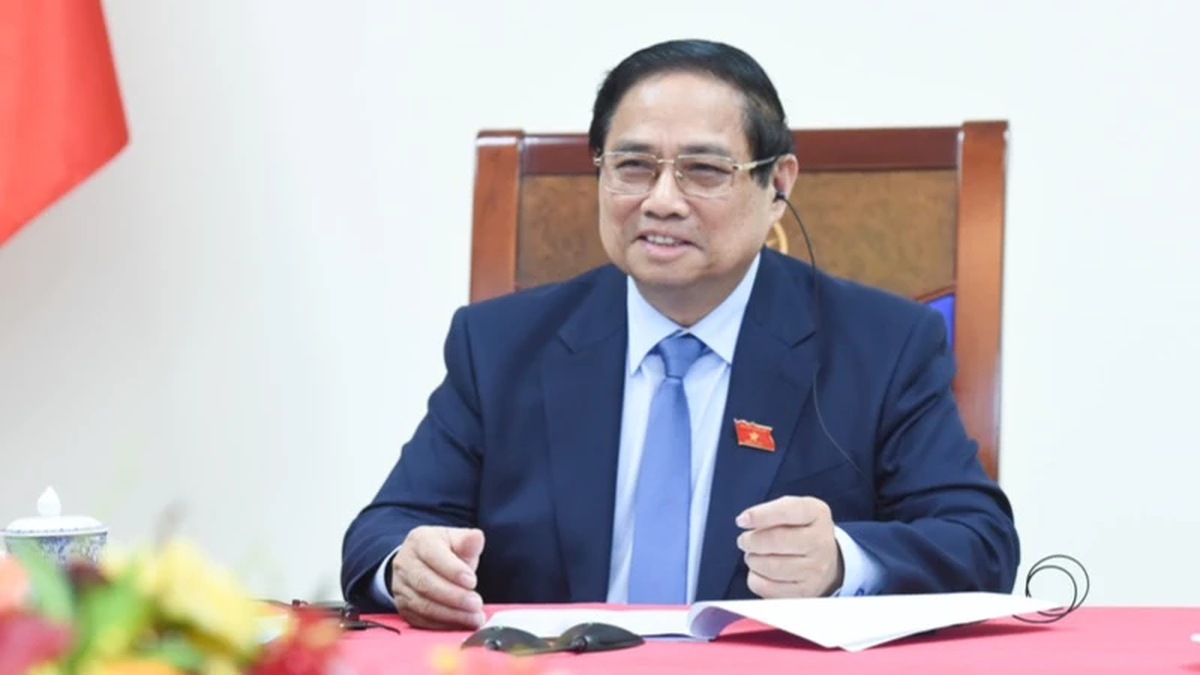
![[Photo] Prime Minister Pham Minh Chinh meets with the Policy Advisory Council on Private Economic Development](https://vphoto.vietnam.vn/thumb/1200x675/vietnam/resource/IMAGE/2025/5/8/387da60b85cc489ab2aed8442fc3b14a)

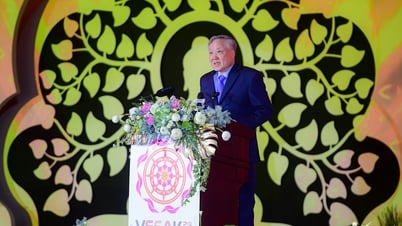

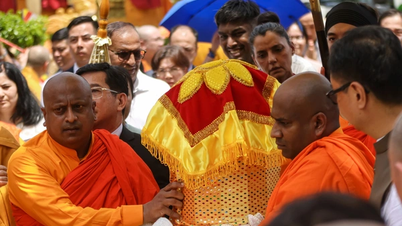


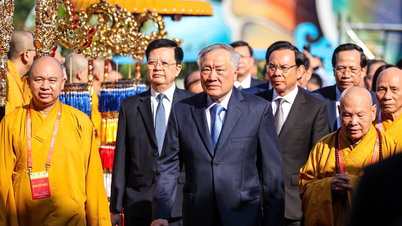






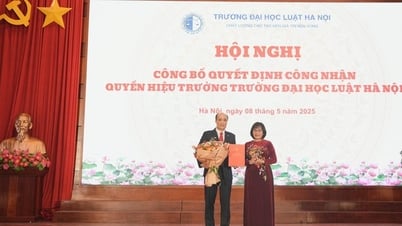



































![[Photo] Prime Minister Pham Minh Chinh talks on the phone with Singaporean Prime Minister Lawrence Wong](https://vphoto.vietnam.vn/thumb/402x226/vietnam/resource/IMAGE/2025/5/8/e2eab082d9bc4fc4a360b28fa0ab94de)











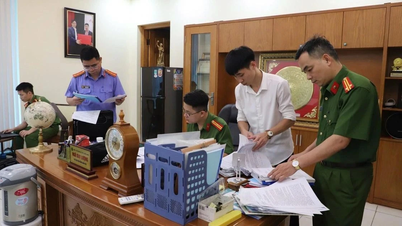



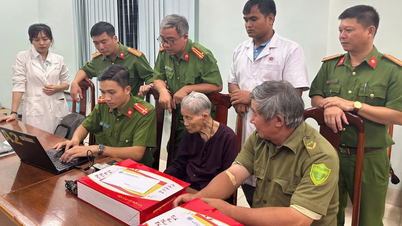

















Comment (0)